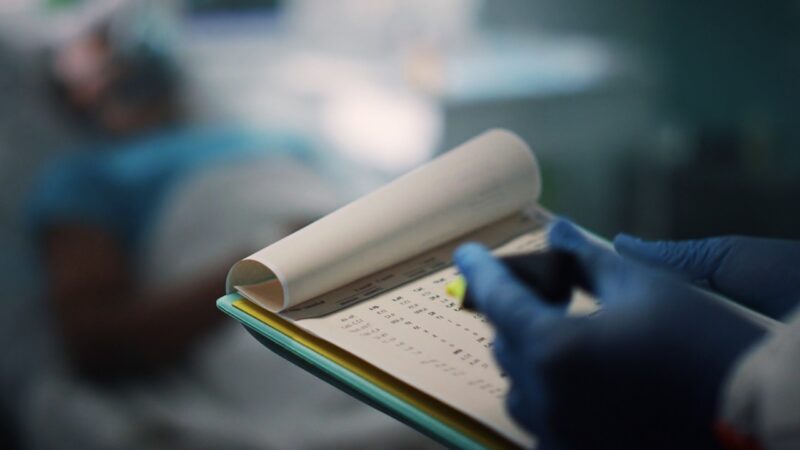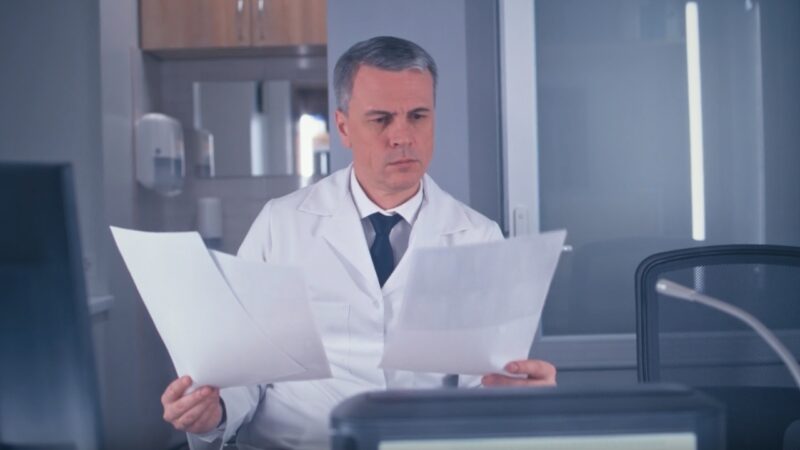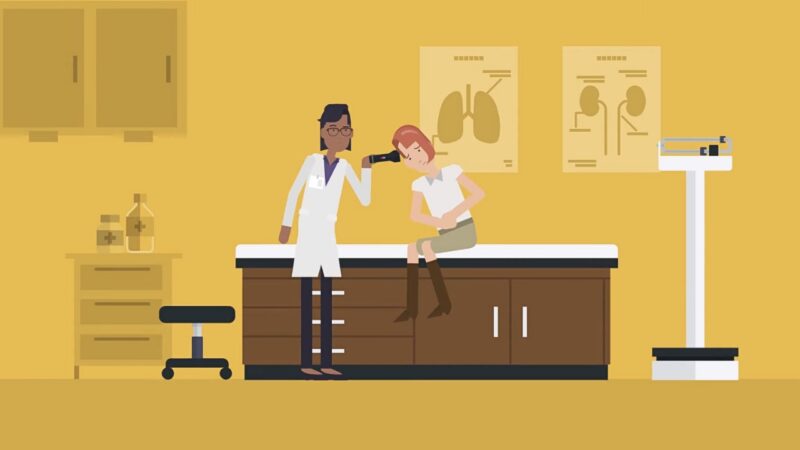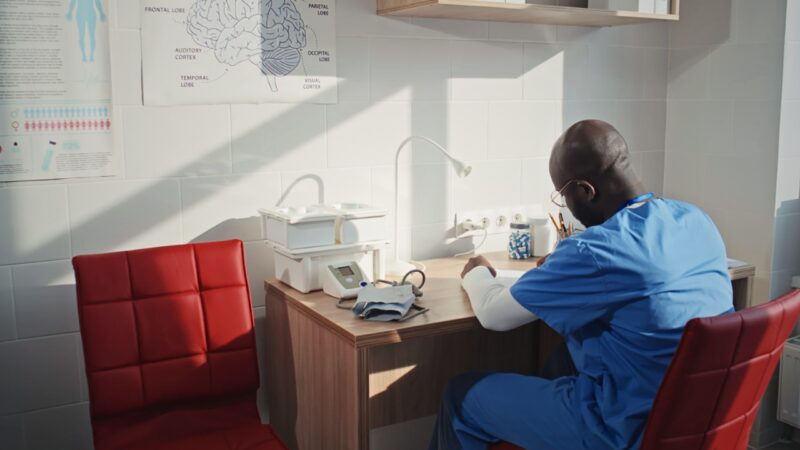The HIPAA Privacy Rule is a crucial piece of legislation that plays a fundamental role in the healthcare system of the United States. It’s designed to protect the privacy and security of our personal health information.
If you’ve ever visited a doctor’s office, or hospital, or used health insurance, this rule impacts how your health data is handled.
In simple terms, this rule sets guidelines for how health information should be protected, ensuring that your sensitive health details aren’t shared without your permission.
It’s about keeping your personal health information safe and secure while providing you the right to access and control your own health data.
Today, we will guide you through the basics of this rule, why it’s important, and how it affects you and your healthcare providers.
What Information is Protected

At the heart of the HIPAA Privacy Rule is the protection of “individually identifiable health information,” which encompasses a broad range of data.
This includes any information held or transmitted by a covered entity or its business associate, in any form, that relates to an individual’s health status, provision of health care, or payment for health care and can be linked to an individual.
The rule is comprehensive in its scope, covering various forms of information, including electronic, paper, and oral communications. The definition of protected information under HIPAA is intentionally broad to ensure that all forms of sensitive health information receive adequate protection.
The Minimum Necessary Standard
A pivotal aspect of the HIPAA Privacy Rule is the ‘minimum necessary’ standard, a principle that ensures that access to personal health information is appropriately limited.
This standard requires that covered entities make reasonable efforts to limit the use, disclosure, and request of PHI to the minimum necessary to accomplish the intended purpose.
It’s a principle based on the ‘need to know’ basis, balancing the protection of patient privacy with the practical need to use information for legitimate purposes. This standard is particularly important in minimizing the risk of unnecessary exposure to sensitive health information.
Rights Granted to Individuals
The HIPAA Privacy Rule empowers individuals with significant rights over their health information, marking a shift towards greater patient control over personal data.
These rights include the ability to examine and obtain a copy of their health records, a right that enhances transparency and trust in the healthcare relationship.
Patients also have the right to request corrections to their information, ensuring the accuracy and completeness of their health records.
Furthermore, the rule mandates that individuals must be informed about how their information is used and shared, reinforcing the principle of consent and informed decision-making in healthcare.
Impact on Patients and Healthcare Providers
The HIPAA Privacy Rule significantly empowers patients, granting them greater control and autonomy over their personal health information.
This empowerment manifests in several ways, including the right to access and review their medical records, a critical aspect of patient engagement and informed decision-making.
Patients can also request amendments to their records, ensuring the accuracy and completeness of their health data.
Moreover, the provision for an accounting of disclosures enables patients to track who has accessed their information, further enhancing transparency and trust in the healthcare relationship.
Responsibilities of Healthcare Providers

Healthcare providers face significant responsibilities under the HIPAA Privacy Rule. They are required to protect patient privacy while ensuring that essential health information is available for patient care and other critical purposes.
Compliance for providers involves implementing a range of safeguards, including technical measures like secure electronic health record systems, physical safeguards like locked cabinets for paper records, and administrative actions such as staff training on privacy policies.
Additionally, providers must uphold patient rights as stipulated by HIPAA, which includes responding to patient requests for access to their health information in a timely manner.
Enhancing Trust in the Healthcare System
The HIPAA Privacy Rule plays a crucial role in enhancing trust within the healthcare system. By ensuring the confidentiality and security of health information, the rule builds patient confidence, encouraging them to share sensitive health information with healthcare providers.
Trust is a foundational element in the patient-provider relationship, critical for effective diagnosis, treatment, and overall patient satisfaction.
Furthermore, the rule’s presence assures patients that their health data is handled with care, which is essential in today’s digital age where data breaches and information misuse are significant concerns.
The Role of Consent and Authorization
In the context of the HIPAA Privacy Rule, consent pertains to a patient’s general agreement allowing the use and disclosure of their PHI for routine purposes like treatment, payment, and healthcare operations.
This consent is typically obtained when a patient first seeks care from a healthcare provider.
It’s important to note that the rule allows healthcare providers to use and disclose PHI for these routine purposes without a patient’s explicit consent, but they must make a good faith effort to obtain the patient’s acknowledgment of their privacy practices.
The Need for Specific Authorization
For disclosures and uses of PHI that fall outside routine purposes (treatment, payment, and healthcare operations), the HIPAA Privacy Rule mandates obtaining specific authorization from the patient.
This authorization must be in writing and clearly specify the information to be used or disclosed, the purpose of the disclosure, and to whom the information is to be disclosed.
It’s a more stringent requirement than general consent, reflecting the rule’s emphasis on patient control over their PHI, particularly for uses that could have significant implications for the individual’s privacy.
Revocation of Authorization
Patients retain the right to revoke their authorization at any time under the HIPAA Privacy Rule. This revocation must be in writing, and upon receiving it, the covered entity is obliged to cease using or disclosing PHI as previously authorized.
This right is a critical aspect of the rule’s empowerment of patients, allowing them to change their minds about how their information is used and shared, reflecting changes in their preferences or circumstances.
Compliance and Consequences of Non-Compliance

Compliance with the HIPAA Privacy Rule is a legal and ethical mandate for covered entities. It requires the implementation of comprehensive policies and procedures that adhere to the standards and provisions of the Privacy Rule.
These include implementing various safeguards such as technical security measures, conducting regular training for staff, and ensuring that patient rights are consistently upheld.
Compliance is not static; it requires ongoing effort and adaptation to changes in technology, healthcare practices, and regulatory updates.
Penalties for Non-Compliance
Failure to comply with the HIPAA Privacy Rule can result in significant repercussions. The Office for Civil Rights (OCR), which enforces the HIPAA Privacy Rule, can impose a range of penalties for non-compliance.
These penalties can vary from monetary fines to criminal charges, depending on the severity and nature of the violation.
The fines can be substantial, reaching up to hundreds of thousands of dollars, and in cases of willful neglect, criminal charges can be filed, leading to even more severe consequences.
The History and Evolution of the HIPAA Privacy Rule
The journey of HIPAA began in 1996, originally conceived as a means to enhance the efficiency and effectiveness of the healthcare system in the United States.
The act was a response to the growing need for a standardized approach to handling health information, particularly in an era where digital technology was beginning to reshape healthcare operations.
HIPAA’s initial focus was on streamlining administrative processes and ensuring the portability of health insurance coverage, but it quickly evolved to address privacy and security concerns.
This evolution was driven by the recognition of the sensitive nature of health information and the risks associated with its exposure.
The Advent of the Privacy Rule
The HIPAA Privacy Rule, established by the U.S. Department of Health and Human Services (HHS), came into effect as a response to growing concerns about the privacy and security of health information.
Implemented to set a national standard for the protection of individuals’ medical records and other personal health information, the rule was groundbreaking in its scope and impact.
It marked a significant step in ensuring that personal health information is treated with the utmost confidentiality and care.
The rule laid out specific requirements for covered entities, mandating a set of practices and safeguards to protect sensitive health information from unauthorized access and disclosure.
FAQs

Can an individual request the deletion of their health information under HIPAA?
Under the HIPAA Privacy Rule, individuals do not have the right to demand the deletion of their health records from a covered entity’s records.
While individuals can request amendments to their records if they believe the information is incorrect or incomplete, covered entities are not required to delete health information, as these records are often necessary for treatment and legal compliance.
Does HIPAA apply to health information shared on social media by patients?
HIPAA does not govern what patients share about themselves on social media. The Privacy Rule applies to covered entities such as healthcare providers, health plans, and healthcare clearinghouses.
Patients are free to share their health information on social media platforms without HIPAA restrictions, but they should be aware of privacy risks in doing so.
Are small healthcare practices exempt from HIPAA compliance?
No, size does not exempt a healthcare practice from HIPAA compliance. The HIPAA Privacy Rule applies to all covered entities regardless of their size.
This includes small healthcare practices, which are required to protect PHI and adhere to the same privacy and security standards as larger healthcare organizations.
How does HIPAA handle the use of patient information for research purposes?
Under the HIPAA Privacy Rule, the use of PHI for research purposes generally requires patient authorization.
However, there are exceptions where a covered entity can use or disclose PHI for research without authorization, such as when the information is de-identified or when an Institutional Review Board (IRB) or Privacy Board waives the authorization requirement under certain conditions.
Can healthcare providers discuss a patient’s health information with family members?
Yes, healthcare providers can share a patient’s health information with family members, but only under certain circumstances. If the patient gives consent, or if the provider believes it’s in the patient’s best interest and the patient has not objected, information can be shared.
This is often relevant in situations where patients are unable to make decisions on their own.
What steps must a covered entity take if there is a breach of PHI?
If there is a breach of PHI, the covered entity must first contain the breach and mitigate any potential harm. Then, they must notify affected individuals, the Department of Health and Human Services, and in some cases, the media, depending on the size and nature of the breach.
They are also required to investigate the cause of the breach and take steps to prevent future occurrences.
Summary
In a world where we share so much information digitally, the HIPAA Privacy Rule plays a key role in making sure our most sensitive health details are kept safe. This rule gives you the right to access your medical records and control who sees your health information.
Healthcare providers must follow strict guidelines to keep this information safe. Remember, the HIPAA Privacy Rule is there to protect your privacy and ensure your health information is handled with care and respect. It’s an essential part of maintaining trust and confidentiality in the healthcare system.
